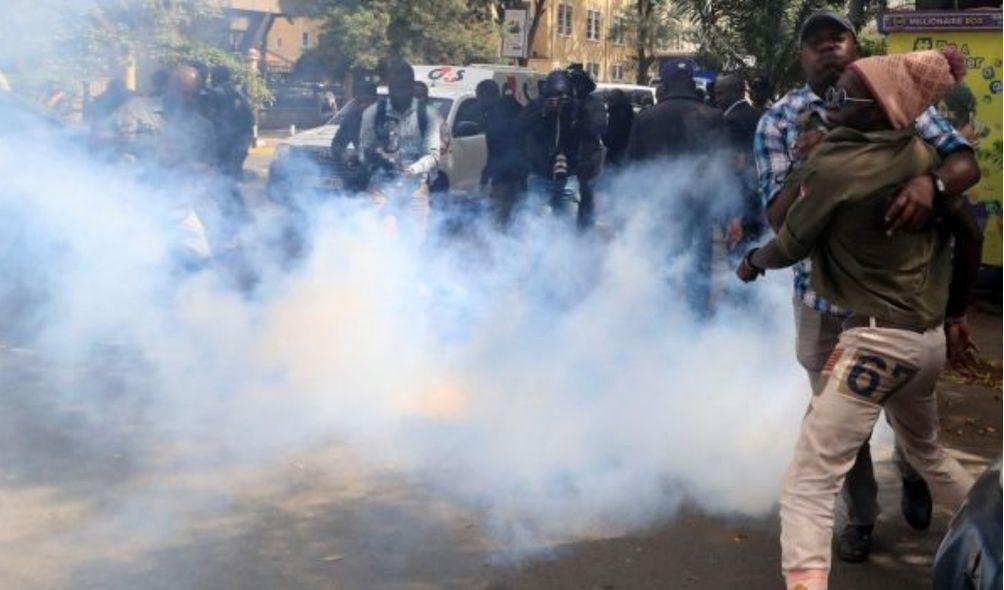MPs Push to Ban Police Teargas on Protesters
The government is anticipated to deliver a detailed report to parliament regarding the impact of tear gas used during the ongoing anti-government protests.
Legislators are urging the police to cease the use of tear gas on protesters immediately, citing violations of the 1925 Geneva Protocol and the 1993 Chemical Weapons Convention.
Ndhiwa MP Martin Owino has requested a statement from the Health Committee, asking the government to disclose the concentration levels of tear gas and other irritants employed against demonstrators.
Mr. Owino emphasized the need for the committee to provide insights into the concentration of tear gas and other irritants used by law enforcement, questioning whether their use is justified given their harmful effects on victims.
The lawmaker, serving his second term, also demands the government detail both the short-term and long-term effects and risks of tear gas exposure, particularly for vulnerable groups like those with respiratory conditions.
ALSO READ:
- “Two Groups, One Agenda”: Gachagua Accuses Raila of Secret Political Deals
- Exclusive: Ida Odinga’s 75th Birthday Party in Karen (Photos)
- FKF President Discloses Exact Amount Paid to Harambee Stars Players
- Gachagua’s Ally Senator John Methu Admits Ruto Might Win 2027 Elections
- Maraga Explains Why He Hasn’t Campaigned in Kisii Despite 2027 Bid
Additionally, he wants the government to inform parliament on the protective strategies in place and alternative methods that could replace tear gas and other irritants in managing protests, riots, and civil unrest.
Mr. Owino highlighted that the Geneva Protocol of 1925 and the Chemical Weapons Convention of 1993 prohibit the use of tear gas.
The 1925 Geneva Protocol classified tear gas as a chemical warfare agent and banned its use in warfare following World War I. The protocol was signed during a Geneva conference and came into force on February 8, 1928, according to the United Nations.
Mr. Owino also expressed concern that the protests led by young Kenyans calling for social change have been met with excessive crowd control measures and chemical use, putting vulnerable populations such as children, the elderly, and those with pre-existing conditions at risk.
“Scientific studies have shown that tear gas exposure can lead to a variety of issues, from acute symptoms like eye, skin, and respiratory irritation to long-term effects such as glaucoma, blindness, respiratory failure, and even death due to chemical burns in the lungs,” Mr. Owino stated.
Speaker of the National Assembly Moses Wetang’ula has tasked the Health Committee with delivering a thorough statement addressing all the concerns brought up by the lawmaker.
MPs Push to Ban Police Teargas on Protesters
